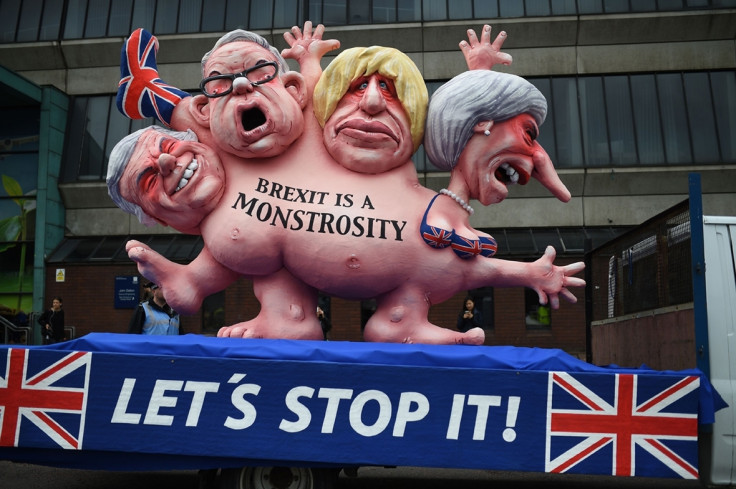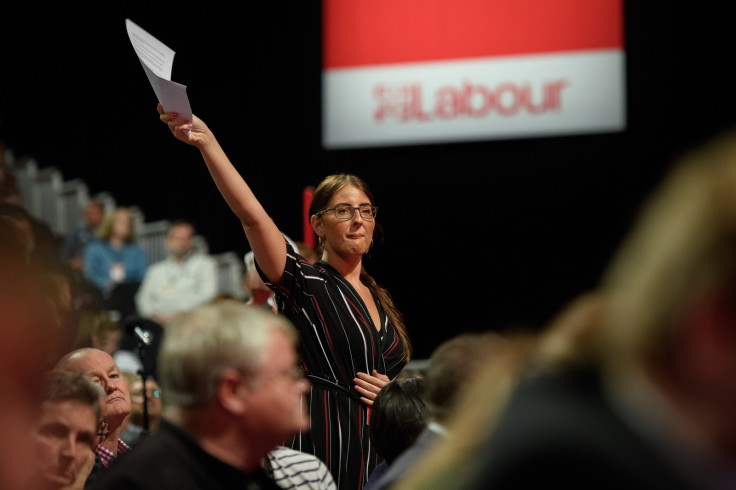Politics isn't about being polite to Tories if they inflict suffering on people
MPs are elected to represent the interests of those who elected them, not make friends.

Does civility matter in politics? Ought one to be pleasant to one's opponents? Is it possible, even, to be friends with them?
The increasing polarisation of political argument has brought with it a debate around the extent to which one should fraternise with the enemy. When the stakes are so high, politeness can feel like an irresponsible indulgence.
The newly-elected Labour MP Laura Pidcock probably captured the mood of growing mutual hostility when she told the website Skwawkbox that her hatred for the Tories was "visceral" and that she would not "hang out with Tory women".
Unsurprisingly this prompted a round of recriminations from the prophets of civility who see politics as a managerial formula as opposed to a clash of interests. Despite the headlines, Pidcock went on to say something that made a good deal of sense, which was that felt she was in parliament "to be a mouthpiece for my constituents and class – I'm not interested in chatting on".
The thing about representative democracy – five-year terms, salaries much higher than that of the average worker, the ability, in certain parliamentary seats, to effectively score a job for life etc – is that it lends itself to the creation of a political class that acts for itself.
It's like the old joke about the Labour MP who gets a pat on the back from a duke and is suddenly less interested in his downtrodden constituents.
This is not a uniquely British phenomenon – though the exceptional pomp and ceremony in this country arguably helps to imbue the idea of an administrative elite. As an activist from Podemos told me recently: "Some people, when they become MPs [in the Spanish Parliament], their metabolism changes and they just become completely different people."
Beyond parliamentary work, in which a degree of compromise is necessary, it is probably healthy, then, for any new MP to retain a degree of separation from the garrulous bars and restaurants frequented by Westminster types. MPs are after all in parliament to get things done and – perhaps more importantly – to represent the interests of those who elected them.
But does this process obviate the need for civility? Is it in fact better to cultivate something closer to a "relentless hatred of the enemy", as Che Guevara, who was killed 50 years ago this week, put it? (Though granted the comparison doesn't quite work in that Guevara was talking about enemy combatants in a guerrilla war).
Civility is probably overrated, at any rate. A useful example of the superficial piety that animates so many British liberals is contemporary hand-wringing at the former Labour Health Secretary Aneurin Bevan likening Tory MPs to "vermin" in 1948. "So far as I am concerned they are lower than vermin," Bevan thundered during a speech at the Bellevue Hotel in Manchester.
Bevan was referring at the time to a party that had "condemned millions of first-class people to semi-starvation", as he went on to say. Bevan was himself from Tredegar in the South Wales Valleys.

The miner and 'proletarian' writer Bert Lewis Coombes, who moved to the South Wales coalfield from Hereford during the period Bevan was referring to, depicted life in the colliery towns as "continual slavery and dust; the poor clothes and bare living; the need for decent men to beg their bread...the eviction from his home of some miner who has opened his mouth too wide or refused to be robbed of his wages when they were due".
This material reality was a deliberate political imposition: in 1931 the Tory-dominated National Government had cut unemployment benefit and public sector wages to reduce a budget deficit. Unemployment at that time was around three million. Even life in work was only marginally better. "No holiday...or Sunday, and no other prospect but to get greyer and weaker with the years, until the grave soothes with its long rest; and even then that last bit of ground having to be paid for very dearly," as Coombes wrote.
To cling peevishly to Bevan's language represents little more than an aversion to giving reality a rhetorical foundation. For, however much one may wish to dress up the poverty of the 1930s as accidental, men and women were reduced to beggary because most MPs could "no more visualise the destitution...than you can visualise a tornado in Japan," as a 1933 BBC series called "Time To Spare" put it. It was not in their interests to acknowledge the widespread suffering, let alone to put a stop to it.
To the extent that you do not completely dehumanise your adversaries, civility in politics is desirable. The notion that abusive behaviour is acceptable so long as it involves 'punching down' - i.e. speaking on behalf of the powerless and to the powerful – is no use if you plan on attaining power for yourself at some point (and what is the point of politics unless you do?).
People rarely change for the better once in office; more often the behaviour hitherto expressed manifests itself with a greater degree of potency.
But civility and politeness are scant consolation for the infliction of material suffering. They simply create a rhetorical universe that is easier to stomach than the cruel reality – and the unavoidable realisation that someone in power ought to be held responsible for it.
© Copyright IBTimes 2025. All rights reserved.






















